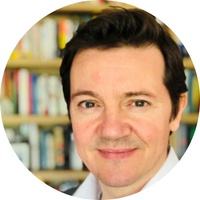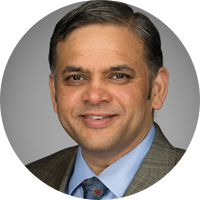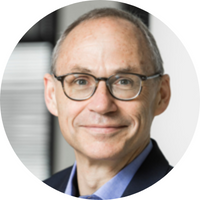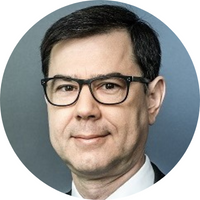
"... Learn about the project, the company, the technology, the business, and the customers."
In the first 5 years, a new colleague should 1) learn voraciously, 2) make a difference through clear contributions, and 3) continually explore his/her career journey.
- In every assignment, learn about the project, the company, the technology, the business and the customers. Learning agility is critical over an entire career and a strong predictor of success. Being a learner involves listening well and summoning the bravery to keep asking questions until you understand deeply. It requires figuring out what is truly important to a project or a customer and focusing in on the most critical tasks or unsolved problems. Answers to key questions can be found inside a company or outside, so learn broadly as well as deeply. Figure out how a project aligns with the goals of the company. And embrace quick pivots when things do not work as intended.
- Your contributions are the most important legacy you create in each role. Credibility from a track-record of contributions opens new career doors. Persevere through the challenges to leave every situation better than you found it. In addition to a record of business accomplishments, establish a reputation for generosity. Help everyone at all levels be successful.
- Your career is a unique journey and each segment of the journey is an experiment where you can try new things and learn what suits your skills. Build a network of mentors and advisors and learn about the journey of others while engaging them to consider yours with you. Reflect on your career regularly and refine your aspirations as you learn more about your strengths and what you enjoy. Your career is like a novel where you get to be both the author and the protagonist so create a wonderful and impactful adventure.

"I have two thoughts to share..."
Over the long term, like stock performance, your stock will not rise if you don’t produce results. People in your professional orbit assessing your ‘stock value’ – directly or indirectly – will themselves have learned, maybe the hard way, the difference between self-PR and concrete achievements. They will be able to spot it!
With that, I have two thoughts to share - one is always carefully working out what an impactful *output* will be for the role that you can recount with satisfaction five or ten years later. How does it change things for the better? Then as you carry out your part, never lose sight of those goals, even for a single hour of the working day. Know what you will take once this current role concludes as your actual ‘trophies.’ If those outputs don’t self-start you and fire up passion even in the depths of your most frustrating days, the days mired in administrative distractions and small politics, then you’ve not picked the right outputs – or role.
Two. People are all emotional beings. They still need to know what you’re doing, and they aren’t mind-readers. So work out how to get comfortable raising awareness of your output for *good* reasons, for example, so that it can be scaled even greater by you or others. This is not bragging – it’s building. There is a difference, and you must determine what that looks like in your context.”

"Use opportunities to their fullest advantage..."
It is foundational to understand your organization's values and practice them visibly, especially safety. Advancement and promotion recognize the mastery of a suite of skills that demonstrates readiness for the next level of responsibility, not just a reward for successful projects. It takes time.
Seek development opportunities to challenge yourself and contribute passionately and positively. The most effective way to distinguish yourself is to execute excellently, collaborate inclusively, communicate well, and focus on growing daily. Pursue your work with technical creativity, scientific humility, and a clear site of the objectives.
Understand the drivers behind each project in the greater context and how to maximize value. What does the customer want? They might not even know or not be able to translate how materials science can address them. This is why earning a seat at the customer's design table and understanding the issues and potential impact is essential. Look for opportunities to solve our customers' problems and excel compared to competitors. Contribute ideas and innovation while protecting intellectual property.
As a newer employee, you have recently received the most cutting-edge education, bringing a fresh perspective to tricky challenges that may be decades old. Use such opportunities to their fullest advantage, stay in touch with your supervisor, and focus on shaping and delivering innovation using the best tools. Spend more time focusing on your current job and showing results than considering your next appointment. Finally, be a little patient, a little impatient, and willing to take calculated risks. Good luck, and have fun!

"Passion is an... ingredient for success."
The first thing that comes to my mind is creating impact. Take the tasks at hand, shape and advance them with an open mind, and deliver results. In my experience, this is the best way of recommending yourself for larger tasks with greater responsibility. On this journey, you should always be yourself and be authentic. Authenticity is an important trait of great leaders.
Passion is an additional ingredient for success. If you believe in something and are passionate about it, it is much easier to go the extra mile and get the support of others and motivate them.
This brings me to my last recommendation: Develop and expand your network within an organization as well as outside. This allows you to incorporate different perspectives, learn from these, and leverage all available know-how to create results. In this context, engaging mentors who are genuinely interested in your personal development is of utmost importance.

"Here is my advice about what you should strive to accomplish..."
Since "Fortune favors the prepared mind" your first years as a young professional are essential to prepare you to seize the growth opportunities in your career.
Here is my advice about what you should strive to accomplish:
- Be recognized as a skilled professional: Put your skills to good use to make your projects successful. Learn new skills and gain a deeper understanding of your existing ones. Collaborate with and support your colleagues. Understand and be able to explain how your work brings value to your company. Come up with new ideas and improvement suggestions and don't be shy to share them.
- Have an idea of what you would like to do in your career. Any large company has dozens of career paths and hundreds if not thousands of job types. Some are more technical, others are more customer facing, some are more creative, others more focused on operating the myriad processes of the company. All these jobs are valuable and important but they each require a different mix of skills. By having a general idea of what interests and excites you and by sharing it with your HR business partners, you improve your chances to be assigned to work on specific projects, with specific affiliates or to attend specific training sessions that will bring you closer to your next assignment.
- Build your professional network. Once you have a general idea of where you would like to go next in your career, build your social professional network in those areas of interest. Being assigned to specific projects or attending specialized training sessions are good ways to meet new people. As a researcher, your projects will often bring you in contact with customers, affiliates or experts in marketing or engineering, all of whom could join your professional network and provide you with new insights for your professional growth.
- Last but not least, develop your leadership skills whenever you have an opportunity. Learn how to communicate orally (for example by joining a Toastmasters group), help support or organize local caritative or sustainability actions, become a safety coordinator, volunteer for your Campus events and join some of the different networks such as the Diversity and Inclusion network. In a word, get out of your lab and comfort zone, reach out to your fellow colleagues and be a part of building a better tomorrow.
By taking this proactive approach, your chances to be recognized as a valuable contributor or even as potential future leader of your organization, will dramatically improve, so that when the right opportunity presents itself you will be ready to seize the moment and seamlessly transition to a new and exciting role.
This article has been edited for length and clarity. The opinions expressed in this article are the author's own and do not necessarily reflect the view of their employer or the American Chemical Society.
Copyright 2022 American Chemical Society (All Rights Reserved)









